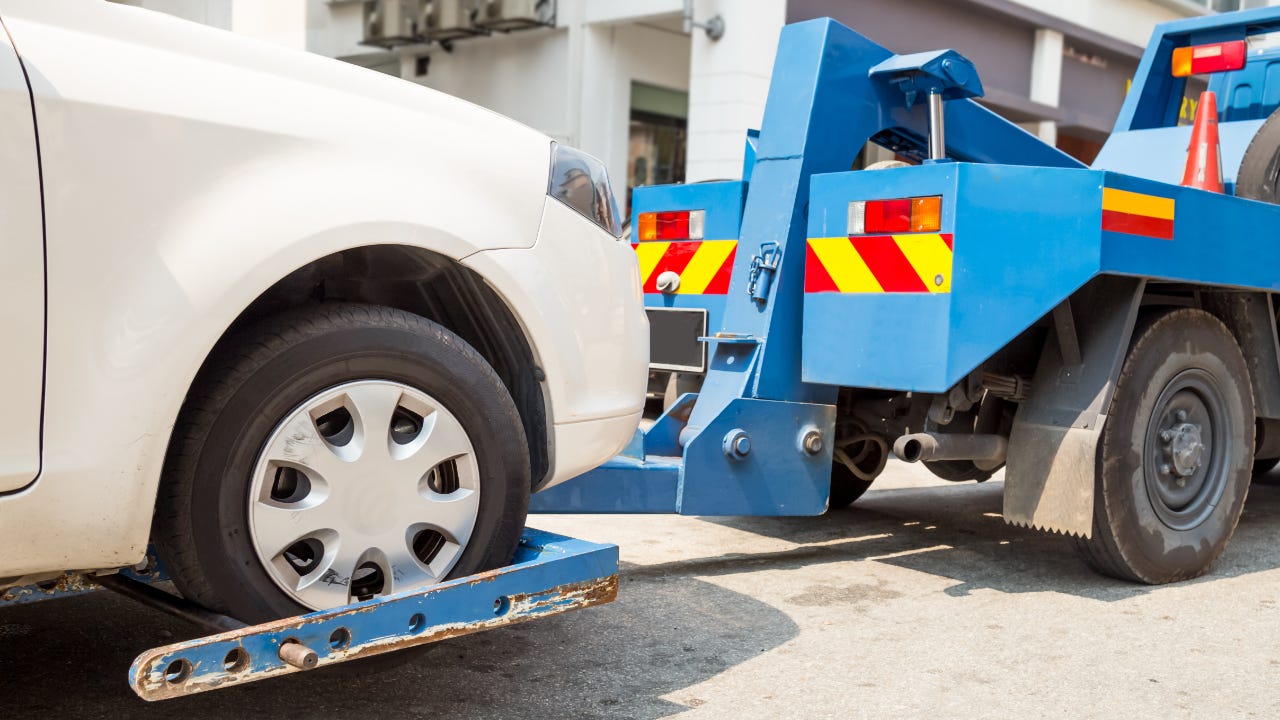Can you include car title loans in a bankruptcy filing?

The Bankrate promise
At Bankrate we strive to help you make smarter financial decisions. While we adhere to strict , this post may contain references to products from our partners. Here's an explanation for .
Key takeaways
- You should include your title loan in a bankruptcy filing, but the debt is unlikely to be discharged.
- How car title loans are addressed through bankruptcy is dependent on whether you pursue Chapter 7 or Chapter 13 bankruptcy.
- Consulting a bankruptcy attorney can help you sort through your options and determine the best next steps.
When you’re in debt or need money to pay bills, a car title loan can seem like a good way to access cash quickly. But suppose your money troubles become unmanageable, and you resort to filing bankruptcy. What happens to the vehicle you signed over as collateral in exchange for that car title loan?
You should include car title loans in your bankruptcy filing. But what happens to the loan depends on whether you pursue Chapter 7 or Chapter 13 bankruptcy.
Car title loans are not discharged in either Chapter 7 or Chapter 13 bankruptcy.
Title loans and Chapter 7 bankruptcy
Under Chapter 7 bankruptcy, you can have unsecured debts such as medical debt, personal loans, and even promissory notes discharged. A title loan is a secured debt, so it cannot be discharged under Chapter 7.
How Chapter 7 bankruptcy works
Chapter 7 bankruptcy is often referred to as liquidation. As part of Chapter 7 filing, unsecured debts can be discharged. This includes credit card debt, medical debt, personal loans and even promissory notes. As part of the process, your nonexempt property will be sold.
That property could include your car if its actual cash exceeds the state or federal exemption limits. However, you may be able to keep your car during bankruptcy.
Following the sale of the assets, the proceeds are used to pay back creditors.
“Although state laws vary, typically all secured loans remain in force,” says Michael Sullivan, a former personal financial consultant with Take Charge America, a nonprofit credit and financial counseling agency.
How Chapter 7 bankruptcy impacts car title loans
A title loan is not an unsecured debt. It is secured by your vehicle. In plain language, you signed over the pink slip to your car in exchange for money. As a secured loan, a title loan cannot be discharged as part of Chapter 7 bankruptcy.
Even so, having your unsecured debts discharged could free up money to use towards payments on the title loan.
You will need to either repay the debt in its entirety or work out a manageable payment plan with the lender who holds the title loan. If these options aren’t possible, you can also choose to surrender the vehicle.
Courts sometimes allow title loans to be addressed as part of Chapter 7 proceedings, says Lamar Hawkins, a bankruptcy attorney with Guidant Law and member of the Arizona Board of Legal Specialization’s Bankruptcy Law Advisory Commission.
“The bankruptcy court disfavors predatory lending, and title loans are commonly predatory,” says Hawkins, adding that in some cases the court will “rewrite the loan to a market rate based upon the value of the vehicle, and have the lender receive payments over time, so that the borrower can keep the vehicle and keep a means of transportation.”
Title loans and Chapter 13 bankruptcy
Your debts are restructured under Chapter 13 bankruptcy. While secured debts aren’t discharged, you may have longer to repay them and may be able to reduce your rate.
How Chapter 13 bankruptcy works
Chapter 13 bankruptcy is a restructuring of your debts. This process includes secured debts such as car title loans, auto loans and even mortgages. As part of Chapter 13, some unsecured debts may even be forgiven. Those that are not forgiven are reorganized and must be repaid over time.
How Chapter 13 bankruptcy impacts car title loans
New Jersey bankruptcy attorney Edward Hanratty explains that under Chapter 13, you can create a repayment plan for all your debts. Over three to five years, you will make monthly payments to a court-appointed trustee. The trustee will distribute the funds to your creditors.
“At the end of the repayment plan you have paid either the fair market value of the car based on the date the case was filed … or the total owed, whichever is less,” he says.
As part of a Chapter 13 filing, you may also be able to lower the dollar amount of the monthly installment payments you must make.
Additionally, some states cap the interest rate that can be charged on personal secured debts during Chapter 13. If your car title loan’s original rate exceeds that cap, it should drop as part of the repayment plan.
Though there is still a risk of losing your vehicle as part of Chapter 13 bankruptcy filings, you have far more options available for restructuring your debt in order to prevent that from happening.
Tell your lawyer about your title loan upfront
Be transparent with your lawyer about all of your outstanding debts and liabilities, including your title loan. Not revealing your title loan will only cause more challenges.
“When you file bankruptcy, you state — subject to the criminal penalty of perjury — that you have listed every asset, including the car, and every debt, including the title loan,” says Dai Rosenblum, a Pennsylvania bankruptcy attorney. “Also, a lawyer can’t fix a problem if they don’t know it exists.”
Moreover, concealing debts during a bankruptcy case could result in its dismissal.
“Or in an extreme case, it could result in jail time for bankruptcy fraud,” says Hanratty. “It’s better to be safe than sorry about this.”
Can I get a title loan while in Chapter 13 bankruptcy?
During the three to five years you spend paying off your debts under a Chapter 13 plan, you may need extra cash. Bankruptcy does not prevent you from taking out a new debt, such as a car title loan. However, taking on new debts comes with risks — and finding a lender willing to work with you while you’re in bankruptcy may be challenging.
According to Nolo, you can take on a new title term with or without seeking court approval first.
However, experts strongly recommend getting approval before taking on new debt. If you seek and receive court approval through the trustee’s office and the court, you can amend your plan to include the new debt.
If you do not get approval first, you have two options:
- Seek approval after the fact: Your creditor must submit a form called a “proof of claim.” You must convince the court the debt was necessary and that it was impossible to get court approval in advance. The court may then agree to include the debt in your plan.
- Pay the debt on your own: Instead of seeking approval, you can simply make payments on your own. However, this approach has risks. You may not be able to afford payments on both your new debt and your bankruptcy plan. And your trustee may object to you taking on new debt — which could lead to your bankruptcy getting dismissed without your debts being discharged.
But be wary: There are risks involved with taking out a title loan. You may lose your vehicle if you can’t repay it, and rates are often sky-high. Explore alternatives first, like bad-credit personal loans.
The bottom line
Car title loans can be addressed through bankruptcy, but how this type of debt is handled will depend on whether you’re pursuing Chapter 7 or Chapter 13 bankruptcy. Each handles debt differently. Understand the differences to improve your ability to keep your car.
Before you take any action, consult a bankruptcy attorney who can help you sort through the options and determine the best course of action.
Related Articles

Can I buy a car before filing Chapter 7 or Chapter 13 bankruptcy?


